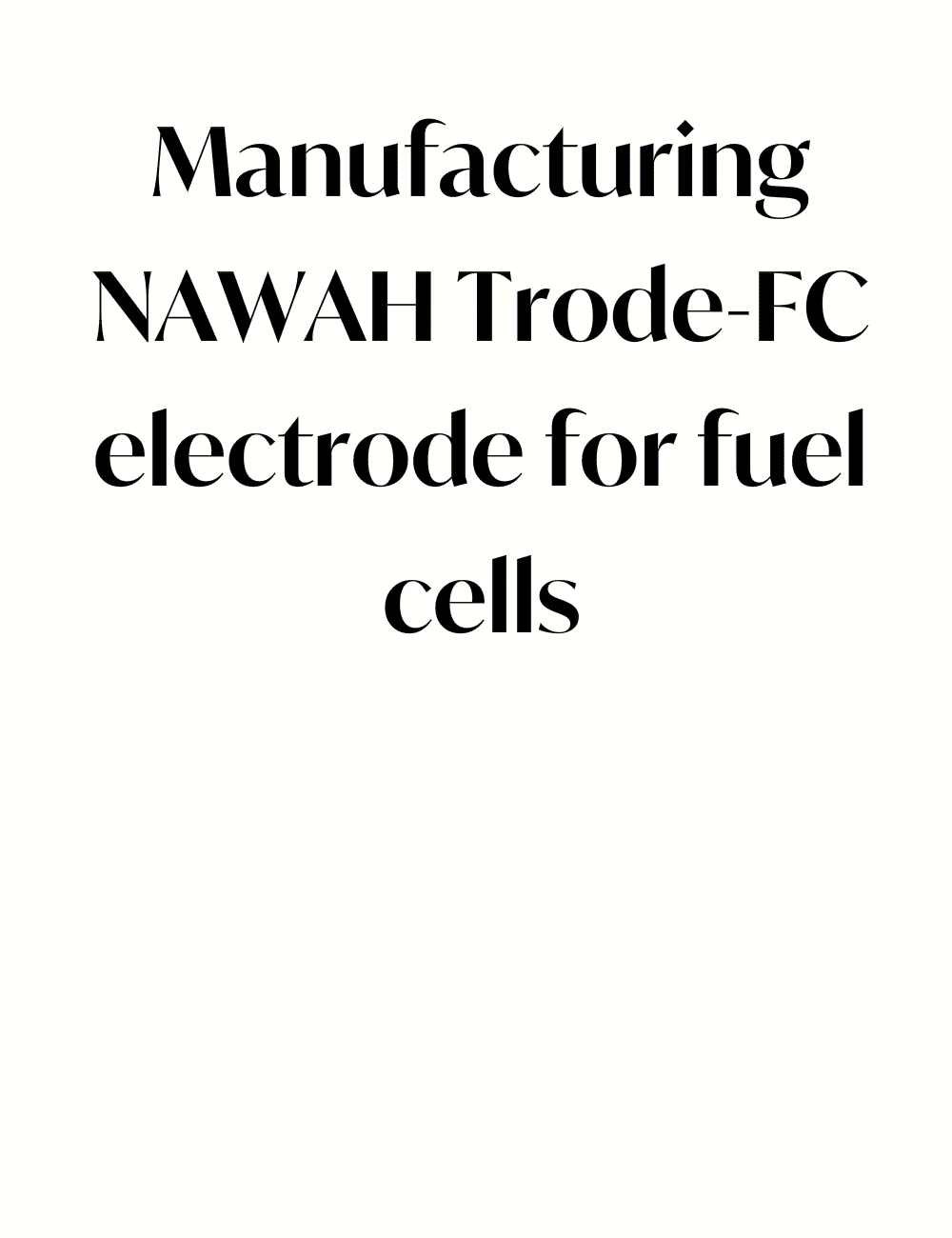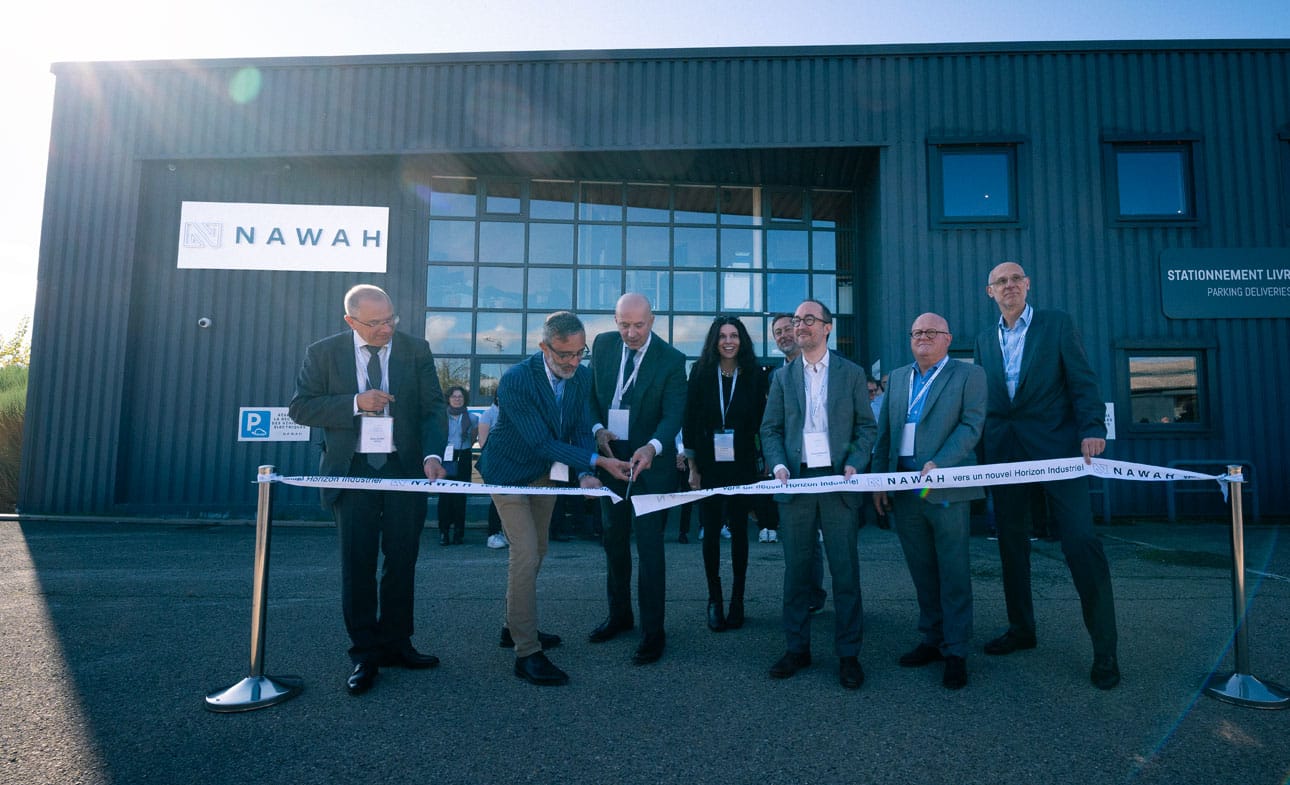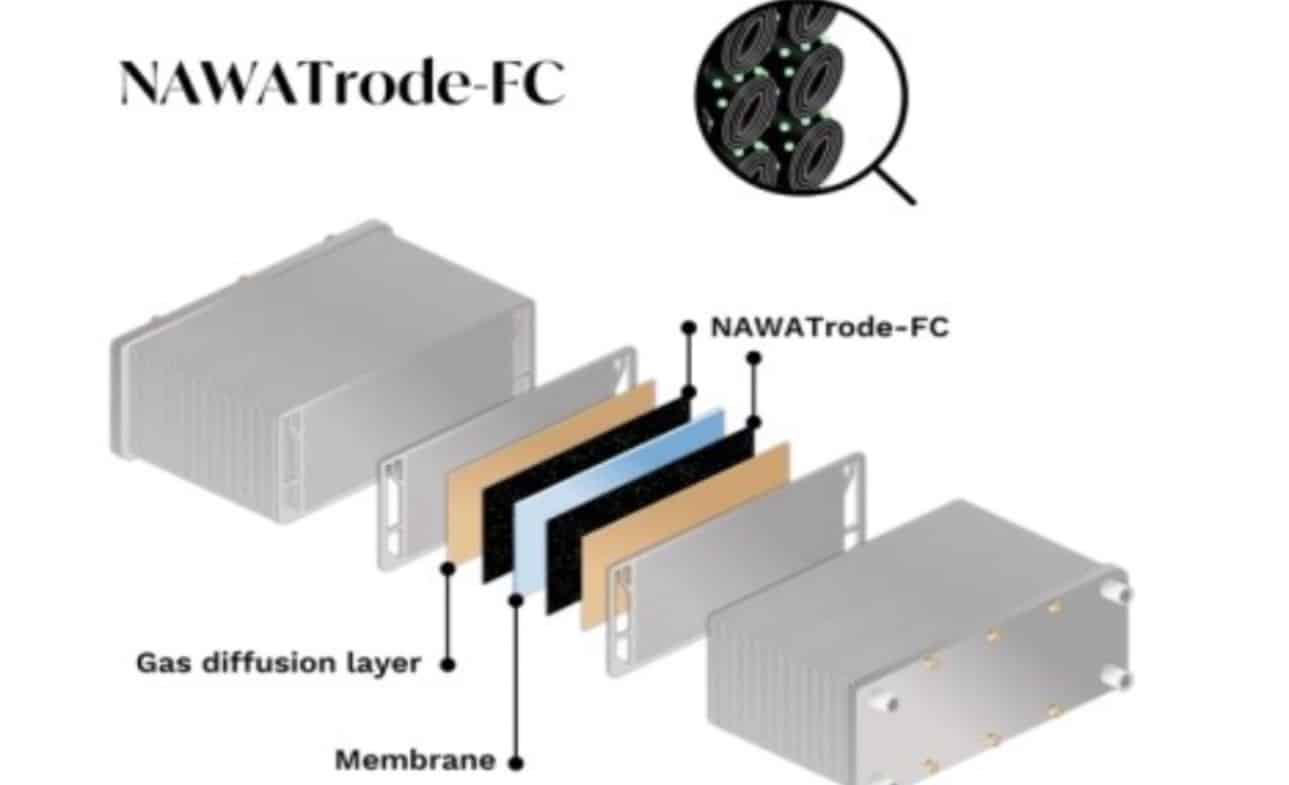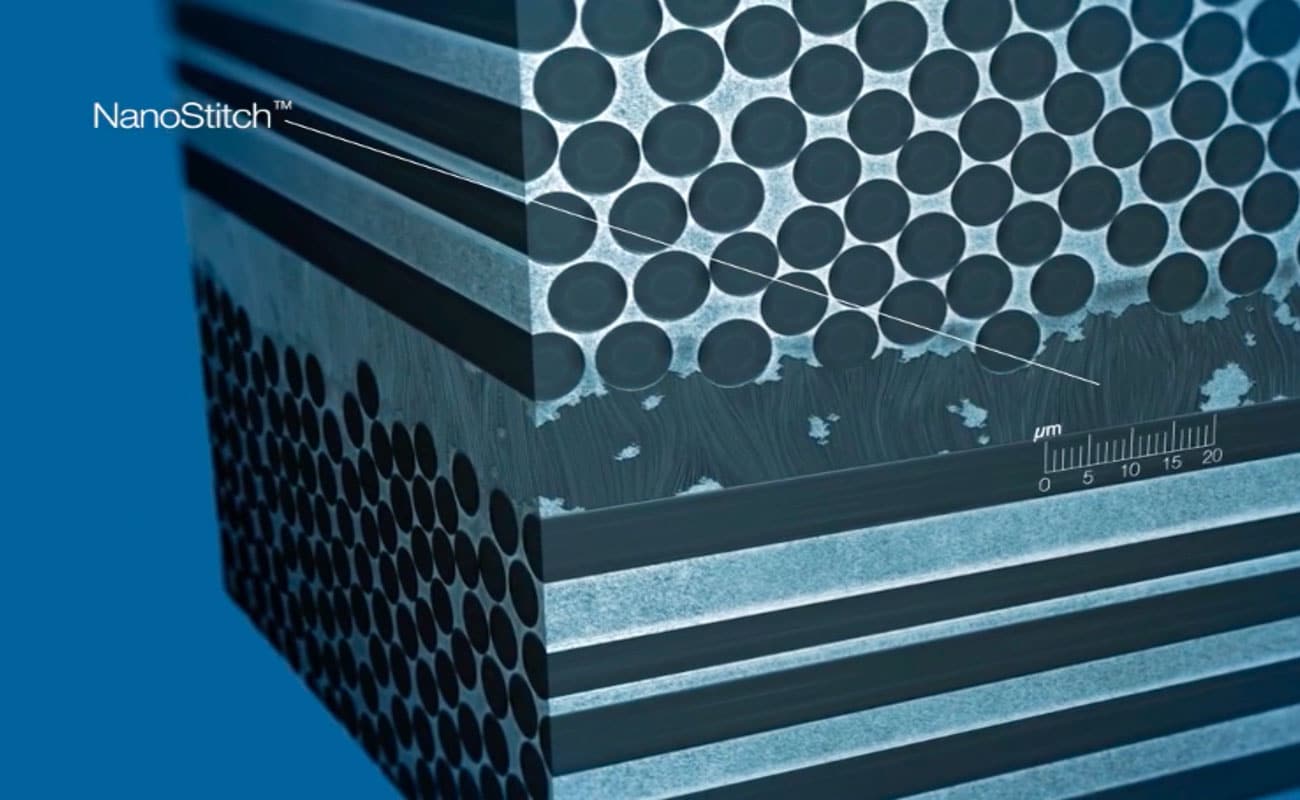Fuel cells are still at the very beginning of their history
50,000 hydrogen vehicles in circulation worldwide Vs more than 1,400,000,000 thermal vehicles.
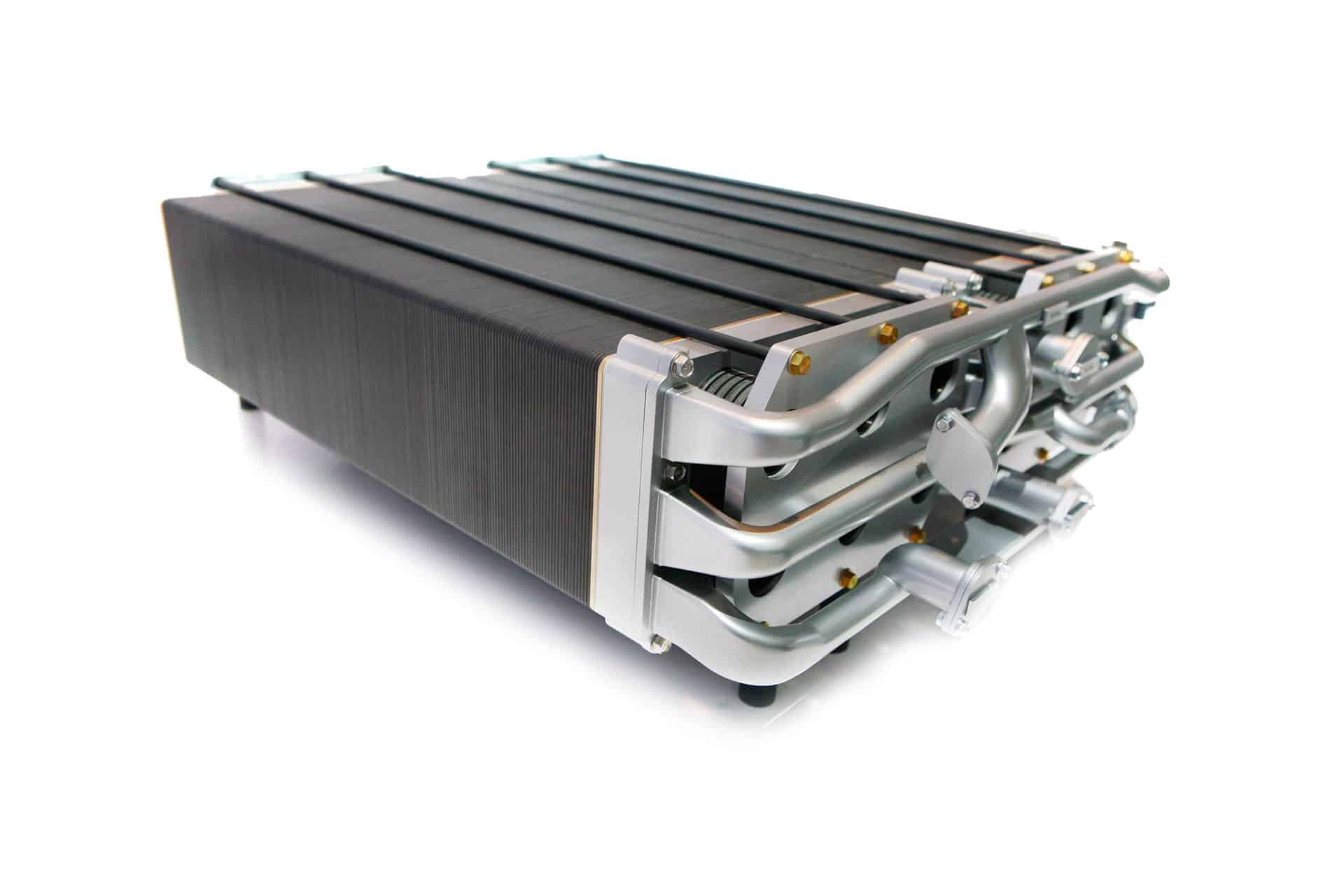
Fuel cells are today very expensive due to the use of precious metals such as platinum, their complex design and limited manufacturing volumes. Today, a fuel cell costs around €80,000, compared to around €3,000 for a combustion engine of comparable power. Reducing the cost of fuel cells is a key driver for hydrogen mass adoption.
In addition, fuel cells remain limited by their lifespan (around 20,000 hours), which is a major obstacle for industrial applications such as heavy duty vehicules, trains, ships or planes. Over time, the platinum clumps together and the carbon corrodes on the electrodes, significantly degrading the performance of the fuel cell.
NAWAH Trode-FC brings fuel cells into a new era
NAWAH Trode-FC is the world’s first “full-nano” electrode combining platinum nanoparticles and NAWAH’s 3D nanocarbon.
With the structuring of carbon and platinum at atomic scale, 1,000 times more precisely than the best electrodes on the market, NAWAH Trode-FC increases the catalytic activity of platinum to a level never achieved before.
By saving platinum, NAWAH Trode-FC paves the way for more compact and cheaper fuel cells. Alternatively, NAWAH Trode-FC makes it possible to design higher power fuel cells for aeronautical applications.

